Ramelteon
Synonym(s):(S)-N-[2-(1,6,7,8-Tetrahydro-2H-indeno-[5,4-b]furan-8-yl)ethyl]propionamide;N-[2-[(8S)-1,6,7,8-Tetrahydro-2H-indeno[5,4-b]furan-8-yl]ethyl]propanamide;Ramelteon solution;TAK 375;TAK-375
- CAS NO.:196597-26-9
- Empirical Formula: C16H21NO2
- Molecular Weight: 259.34
- MDL number: MFCD08067736
- EINECS: 200-835-2
- SAFETY DATA SHEET (SDS)
- Update Date: 2025-12-23 21:30:31
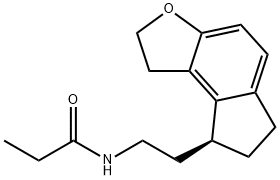
What is Ramelteon?
Absorption
Rapid, total absorption is at least 84%.
Description
Unlike most treatments of insomnia that target the GABA (g-aminobutyric acid) receptor complex, ramelteon is an agonist of the melatonin receptor. In particular, it has high selectivity for the MT1 and MT2 subtypes, which have been implicated in the maintenance of circadian rhythms, over the MT3 receptor responsible for other melatonin functions. Its lack of affinity for not only the GABA receptor complex but also neurotransmitter, dopaminerigic, opiate, and benzodiazepine receptors suggests an improved safety profile devoid of the abuse potential of the hypnotic drugs that target these receptors. As such, ramelteon is not a scheduled drug. Primary metabolites include hydroxylation and oxidation to carbonyl species with secondary metabolites resulting from glucuronidation. Since CYP1A2 is the major isozyme involved in the hepatic metabolism of ramelteon, it should not be taken in combination with strong CYP1A2 inhibitors, such as fluvoxamine. Co-administration with either ketoconazole (a CYP3A4 inhibitor) or fluconazole (a potent CYP2C9 inhibitor) resulted in significant increases in AUC and Cmax, but the extensive metabolism and highly variable plasma concentrations of ramelteon precluded the need for dose modification. The package insert, however, cautions patients about co-administration with potent CYP3A4 and CYP2C9 inhibitors. Based on the result of the clinical trials, the recommended dose of ramelteon is 8mg taken within 30 min of going to bed. In addition to the precaution of co-administration with CYP inhibitors, it should not be used in patients with severe hepatic impairment. The adverse events, observed in 5% of patients in clinical studies, were somnolence, dizziness, nausea, fatigue, headache, and insomnia.
Chemical properties
Crystalline Solid
Originator
Takeda (Japan)
The Uses of Ramelteon
Melatonin MT1/MT2 receptor agonist. Sedative, hypnotic
The Uses of Ramelteon
Ramelteon is a selective melatonin receptor agonist of MT1 and MT2 approved for the treatment of insomnia (trouble in sleeping). It acts as a sedative and hypnotic agent. Ramelteon is the only prescription sleep aid not designated as a Schedule IV controlled substance.
What are the applications of Application
Ramelteon is a melatonin MT1/MT2 receptor agonist
Indications
For the treatment of insomnia characterized by difficulty with sleep onset.
Background
Ramelteon is the first in a new class of sleep agents that selectively binds to the melatonin receptors in the suprachiasmatic nucleus (SCN). It is used for insomnia, particularly delayed sleep onset. Ramelteon has not been shown to produce dependence and has shown no potential for abuse.
Definition
ChEBI: N-[2-[(8S)-2,6,7,8-tetrahydro-1H-cyclopenta[e]benzofuran-8-yl]ethyl]propanamide is a member of indanes.
brand name
Rozerem (Takeda).
General Description
The melatonin molecule was modified mainly by replacing the nitrogen of the indole ring with a carbon to give an indane ring and by incorporating 5-methoxyl group in the indole ring into a more rigid furan ring. The selectivity of the resulting ramelteon for MT1 receptor is eight times more than that of MT2 receptor. Unlike melatonin, it is more effective in initiating sleep (MT1 activity) rather than to readjust the circadian rhythm (MT2 activity). It appears to be distinctly more efficacious than melatonin but less efficacious than benzodiazepines as a hypnotic. Importantly, this drug has no addiction liability (it is not a controlled substance). As a result, it has recently been approved for the treatment of insomnia.
Pharmacokinetics
Ramelteon is the first selective melatonin agonist. It works by mimicking melatonin (MT), a naturally occuring hormone that is produced during the sleep period and thought to be responsible for the regulation of circadian rhythm underlying the normal sleep-wake cycle. Ramelteon has a high affinity for the MT1 and MT2 receptors. The MT1 and MT2 receptors are located in the brain's suprachiasmatic nuclei (SCN),which is known as the body's "master clock" because it regulates the 24-hour sleep-wake cycle. Ramelteon has an active metabolite that is less potent but circulates in higher concentrations than the parent compound. The metabolite also has weak affinity for the 5HT2b receptor.
Synthesis
Vilsmeier-Haack reaction on benzofuran 112 provided aldehyde 113 (100%), which was converted to olefin 114 (88%) by Horner-Emmons reaction with triethylphosphonoacetate, and was followed by hydrogenation of the olefin to give ester 115 (100%). In order to avoid the cyclization of the acid chloride intermediate into the wrong position, the benzene ring was protected by bromination. Both bromination and hydrolysis of the ester is accomplished in a single pot to give acid 116. Thus the ester is brominated with bromine in sodium acetate and acetic acid at 0°C and RT for several hours followed by quenching of remaining bromide by sodium thiosulfate. The resulting acidic solution was taken up in acetonitrile and refluxed for 2hr to provide the acid 116 in 73% yield. The conversion of the acid to acid chloride was done by reacting with thionyl chloride in odichlorobenzene at 40°C for 30 to 40 min after which the reaction was cooled to 0°C . Aluminum trichloride was added and the reaction mixture was stirred at 0°C for 30 min to deliver cyclized ketone 117 in 92% yield. After completion of the cyclization, the bromines are removed by hydrogenation (86%) and resulting ketone 118 was then reacted under Horner-Emmons condition with diethyl cyano phosphonate to give vinyl nitrile 119 in 84% yield. Selective reduction of the nitrile was accomplished by hydrogenation under basic condition (sodium hydroxide in toluene) in the presence of the activated cobalt at 25-50°C for 6.5 hr. The amine was recovered as hydrochloride salt 120 (99% yield) by treating the amine with HCl in methanol. In the next step, the amine salt 120 was taken up in toluene and treated with sodium hydroxide followed by hydrogenation of the mixture with [RuCl(benzene)(R)-BINAP]Cl as catalyst to provide chiral amine 121, after several work up and palladium catalyzed hydrogenations, in 73% overall yield. Final acylation of the amine with propionyl chloride in the presence of aqueous sodium hydroxide in THF at room temperature gave the desired product ramelteon (XVI), after crystallization, in 97% yield. 
Drug interactions
Since CYP1A2 is the major isozyme involved in the hepatic metabolism of ramelteon, it should not be taken in combination with strong CYP1A2 inhibitors, such as fluvoxamine. Co-administration with either ketoconazole (a CYP3A4 inhibitor) or fluconazole (a potent CYP2C9 inhibitor) resulted in significant increases in AUC and Cmax, but the extensive metabolism and highly variable plasma concentrations of ramelteon precluded the need for dose modification. The package insert, however, cautions patients about co-administration with potent CYP3A4 and CYP2C9 inhibitors.
Metabolism
Hepatic
Storage
Store at -20°C
References
[1] KATOKOKI. Neurochemical properties of ramelteon (TAK-375), a selective MT1/MT2 receptor agonist.[J]. Neuropharmacology, 2005. DOI:10.1016/j.neuropharm.2004.09.007.
[2] MIYAMOTO M. Pharmacology of Ramelteon, a Selective MT1/MT2 Receptor Agonist: A Novel Therapeutic Drug for Sleep Disorders[J]. CNS Neuroscience & Therapeutics, 2009. DOI:10.1111/j.1755-5949.2008.00066.x.
[3] MCGECHANADAM WellingtonKeri. Ramelteon.[J]. CNS drugs, 2005. DOI:10.2165/00023210-200519120-00007.
[4] BORJANANCY L DanielKaren L. Ramelteon for the treatment of insomnia.[J]. Clinical therapeutics, 2006. DOI:10.1016/j.clinthera.2006.10.016.
Properties of Ramelteon
| Melting point: | 113-1150C |
| Boiling point: | 455.3±24.0 °C(Predicted) |
| alpha | D20 -57.8° (c = 1.004 in chloroform) |
| Density | 1.119±0.06 g/cm3(Predicted) |
| Flash point: | 2℃ |
| storage temp. | Sealed in dry,Store in freezer, under -20°C |
| solubility | Dimethyl Sulfoxide, Ethanol, Methanol, |
| pka | 16.37±0.46(Predicted) |
| form | Solid |
| color | Crystalline |
| InChI | InChI=1S/C16H21NO2/c1-2-15(18)17-9-7-12-4-3-11-5-6-14-13(16(11)12)8-10-19-14/h5-6,12H,2-4,7-10H2,1H3,(H,17,18)/t12-/m0/s1 |
| CAS DataBase Reference | 196597-26-9(CAS DataBase Reference) |
Safety information for Ramelteon
| Signal word | Warning |
| Pictogram(s) |
 Exclamation Mark Irritant GHS07 |
| GHS Hazard Statements |
H302:Acute toxicity,oral |
Computed Descriptors for Ramelteon
| InChIKey | YLXDSYKOBKBWJQ-LBPRGKRZSA-N |
| SMILES | C(NCC[C@H]1C2=C3CCOC3=CC=C2CC1)(=O)CC |
Ramelteon manufacturer
ALS India Life Sciences Pvt. Ltd
New Products
4,4-Difluoropiperidine hydrochloride tert-butyl 9-methoxy-3-azaspiro[5.5]undecane-3-carboxylate Indole Methyl Resin N-Isopropylurea N,N-Dicyclohexylcarbodiimide(DCC) MELDRUMS ACID 5-METHYLISOXAZOLE-4-CARBOXYLIC ACID Magnessium Bis glycinate Zinc ascorbate 1-bromo-2-butyne 2-acetamidophenol 9(10H)-anthracenone Erythrosin B, 4-Piperidinopiperidine 2-((4-morpholinophenylamino) (methylthio) methylene) malononitrile 2,4-dihydroxybenzaldehyde 3-(4-morpholinophenylamino)-5-amino-1H-pyrazole-4-carbonitrile Methyl 2-methylquinoline-6-carboxylate 2,6-dichloro-4-nitropyridine 4-Bromo-2-chlorobenzonitrile 2-(benzylamino)acetic acid hydrochloride 4-(tert-Butoxycarbonylamino)but- 2-ynoic acid 3,4-dihydro-2H-benzo[b][1,4]dioxepine 1-Phenyl-1-cycloprppanecarboxylicacidRelated products of tetrahydrofuran
![1,2,6,7-Tetrahydro-8H-indeno[5,4-b]furan-8-one](https://img.chemicalbook.in/CAS/GIF/196597-78-1.gif)
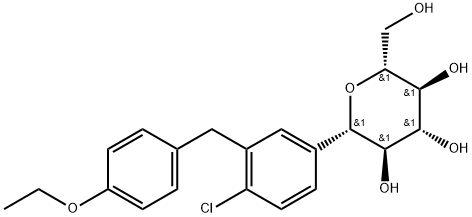
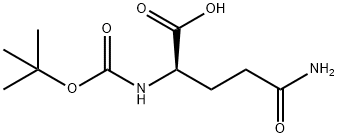


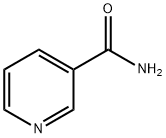

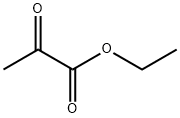
You may like
-
 196597-26-9 99%View Details
196597-26-9 99%View Details
196597-26-9 -
 Ramelteon 98%View Details
Ramelteon 98%View Details -
 196597-26-9 Ramelteon 98%View Details
196597-26-9 Ramelteon 98%View Details
196597-26-9 -
 Ramelteon CAS 196597-26-9View Details
Ramelteon CAS 196597-26-9View Details
196597-26-9 -
 Ramelteon 98% (HPLC) CAS 196597-26-9View Details
Ramelteon 98% (HPLC) CAS 196597-26-9View Details
196597-26-9 -
 Ramelteon CAS 196597-26-9View Details
Ramelteon CAS 196597-26-9View Details
196597-26-9 -
 196597-26-9 Ramelteon 99.10%View Details
196597-26-9 Ramelteon 99.10%View Details
196597-26-9 -
 166597-26-9 Ramelteon 95.00%View Details
166597-26-9 Ramelteon 95.00%View Details
166597-26-9
